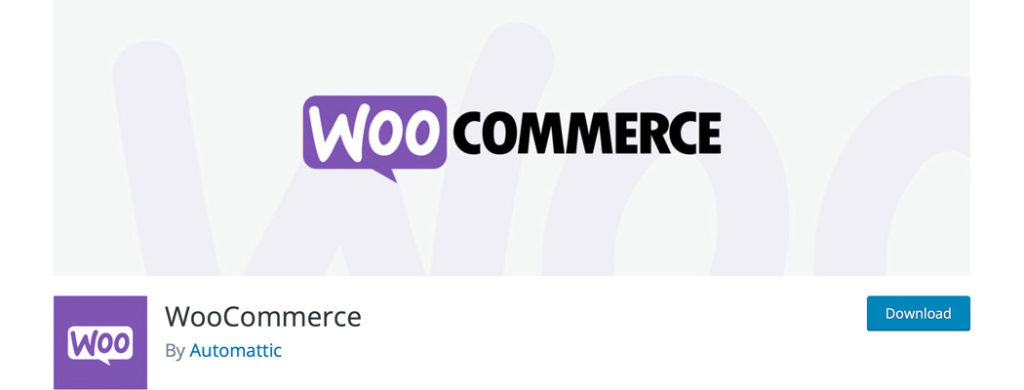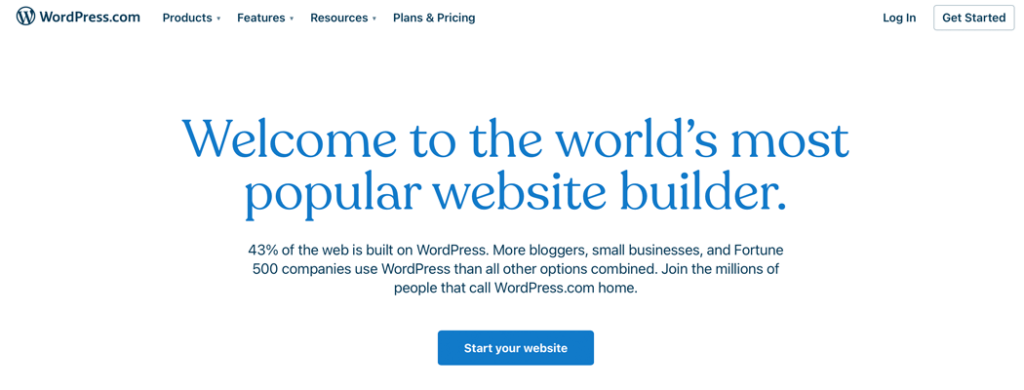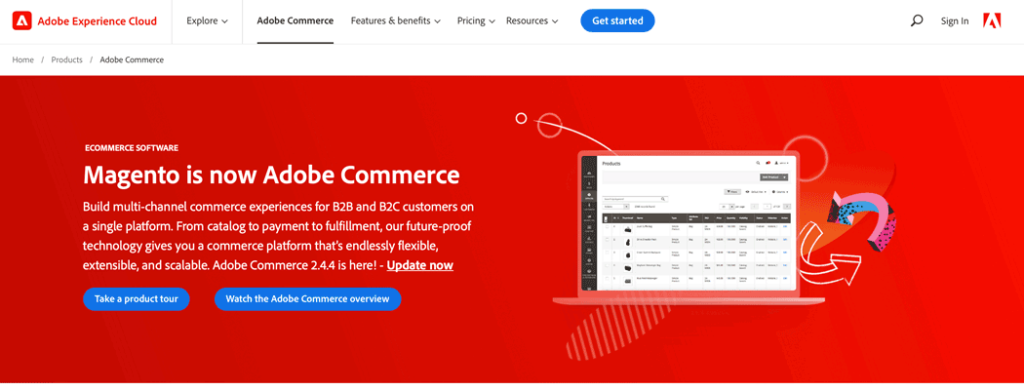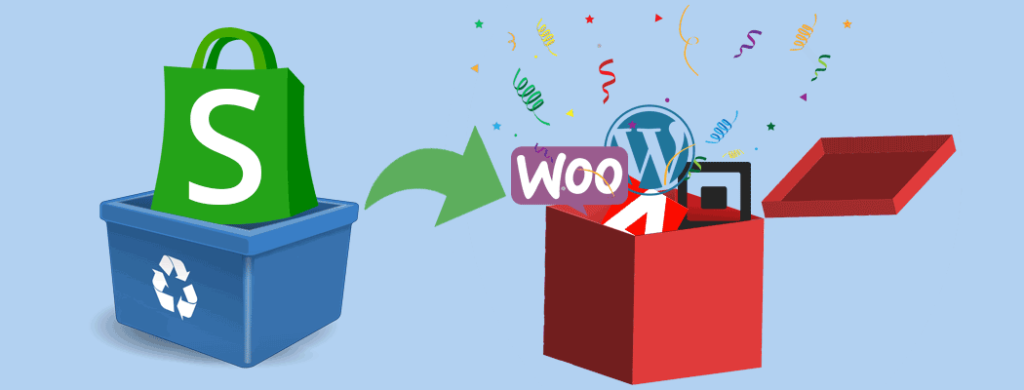Beside the fact that it’s not a one-size-fits all solution, there are several reasons why you may be on the hunt for Shopify alternatives.
For example, you may find that its fees and costs are too high, there aren’t enough features, it’s not customisable enough, it has too many limitations, and there isn’t enough support for Search Engine Optimisation (SEO), international shops or blogging.
As an agency with platinum certified WooCommerce expert developers, we understand that no eCommerce solution is the best fit for every online store. The best option is the one that fits with your specific needs.
That being said, here are more details and our expert pick of the best Shopify alternatives based on your needs as a larger company as well as the reasons why Shopify isn’t a match for your store.
We Shopped for Shopify Alternatives So You Don’t Have To
As previously touched upon, the best Shopify alternatives are the ones that are the best fit for your specific needs. That being said, there are reasons why you should look for Shopify alternatives. They’re outlined below with suggestions, but first, here are our expert picks for the top options to consider.
1. WooCommerce

WooCommerce is an option to extend the in-built capabilities of the most popular Content Management System (CMS) platform called WordPress. Both are open source and free. After setting up your WordPress site, you can download and install WooCommerce in a few clicks from within the WordPress admin dashboard. Your website will be automatically converted to an online store.
Both are highly customisable out of the box, especially when you install add-ons, which are called plugins and extensions. Beyond that, you can infinitely make adjustments with code.
While the software itself is free, there are costs associated with them such as web hosting, since both are self-hosted options. But, there’s also a managed version mentioned below. If you need help from an experienced developer, you’ll need to factor in those costs as well.
WooCommerce and WordPress are both unlimited in terms of its capabilities such as how many blog posts or pages you can publish, how many product variations you can have, and a whole lot more. You’re only limited by the resources you have at your disposal such as with the web hosting you choose.
This option for Shopify alternatives is suitable for so many types of sites and users from personal blogs to small, medium, and enterprise businesses. Because it’s so highly customisable, you can create the exact site you need for your purposes.
It’s much more flexible and customisable than Shopify, and it’s also significantly more affordable, especially when there are thousands of quality free plugins and extensions available. If you can’t find what you need for free, there are premium options as well.
For more detail, check out “What is WooCommerce?” and Other Burning Questions Answered, “Is WooCommerce Free?” What It Costs to Build an Online Store, and WooCommerce vs Shopify: How to Choose Between Them.
2. WordPress.com

WordPress.com is the hosted version of WordPress. You can set up a blog, site or online store in a few clicks, without touching any code. You can start for free and upgrade if you want more features such as a free domain name, Google Analytics integration, the ability to install plugins or turn your site into an online store.
There are plenty of options for themes that you can quickly set up and are quite effortless to customise. The interface is clean, user-friendly and easy to navigate. You don’t need to be tech-savvy to set up your site or blog with this option for Shopify alternatives.
Upgrading is affordable at $5 USD per month for the WordPress Starter plan and $15 USD per month for the WordPress Pro plan. Both options are billed to you once per year. There’s also a 14-day money-back guarantee so you can try it out if you’re not sure if it will be a good fit for your needs.
3. Adobe Commerce (formerly Magento Commerce)

Adobe Commerce is an enterprise-level solution for creating an online store. You can certainly expect to spend considerably more to set up your online store. But, there are so many more features available than with Shopify. The drag-and-drop site builder is also user-friendly and intuitive to use.
It’s built on the open source CMS, Magento. It comes with tonnes more features including inventory management, advanced merchandising rules, product recommendations, centralised analytics, and lots more.
Not only that, but it uses the Adobe Sensei AI to automate workflows and updates. It also creates advanced data reports.
When you ask for a quote, you’ll be guided through a qualifying process. If you’re accepted at the end, you’ll have your online store built for you by Adobe experts.
4. Square

Square isn’t just a popular payment processing solution. This is one of the Shopify alternatives that has an admin dashboard. You can manage the most important aspects of your business when it comes to selling. It’s different because it’s a headless solution, which means you can add its eCommerce capabilities to whatever website you have, no matter what platform or software you use.
Sell online or in person with their Point of Sale (POS) system and generate invoices to send to customers or clients. There are also premium options such as for email marketing. You can also choose to offer gift cards and other common online and retail store capabilities.
It’s a user-friendly option and you can start for free if you only need an online or in-person option without a POS system. The transaction fees are comparable to Shopify, but a bit more affordable.
Expert Pick: Best Shopify Alternatives Based on Your Needs
If you’re not sure which one may be the best option for you when it comes to Shopify alternatives, not to worry. Below is our expert pick of which of these options may be suitable for you based on your needs and why you want to switch from Shopify.
Keep in mind that it’s important to take the time to review all the available options and features so you can get a better idea of which one is right for you. At the end of the day, every online store is different so please consider these suggestions as a general guide:
Your Needs and Our Expert Recommendations
Shopify is too expensive.
Go with WordPress.com, WooCommerce, or Square.
The transaction fees are too high.
Check out WordPress. WooCommerce or Square.
I can’t scale or grow my business with Shopify.
Take a look at Adobe Commerce or WooCommerce.
There aren’t enough features out of the box.
Try WooCommerce or Adobe Commerce.
Shopify isn’t customisable enough, even with third-party add-ons.
Consider WooCommerce, Adobe Commerce, or WordPress.
There aren’t enough templates.
WooCommerce and Adobe Commerce are great Shopify alternatives to think about.
There are too many limitations that Shopify has such as limiting how many product variations you can set up.
WooCommerce or Adobe Commerce can take care of this for you without issue.
I need to have more control over Search Engine Optimisation (SEO).
Have a look at WordPress, WooCommerce or Adobe Commerce.
Shopify isn’t available in the country where my online store is based.
Any of the Shopify alternatives outlined above will be suitable, except for Square, which is dependent on where you built your site initially.
The legal items I want to sell are prohibited for selling on Shopify.
Check out WooCommerce or Adobe Commerce.
Shopify recently and suddenly listed my products as prohibited to sell.
WooCommerce or Adobe Commerce may be a much better fit for your business.
I need more comprehensive blogging capabilities.
WooCommerce or Adobe Commerce are your best bet. Although, WordPress may also be enough for your needs if you’re a small or medium-sized business.
Other Open Source Shopify Alternatives
Other than WordPress and WooCommerce, there are other free and open source eCommerce options that are worth mentioning – mostly because every site is different. Each of these options have capabilities and features that many business owners rely on:
- Joomla (with ecommerce module)
- Solidus.io
- Spree
- PrestaShop
- Medusa
- nopCommerce
What’s Your Pick for Shopify Alternatives?
There are several Shopify alternatives that are powerful and highly customisable. There are also options that are more affordable, extensible and offer more autonomy. No matter which one you choose in the end, the top option is what’s right for your specific needs.
With these expert picks in mind, you’re off to a great start in figuring out which one to use. Interested in creating a professional and highly-customisable WooCommerce online store but you don’t want to do any coding? Feel free to reach out to our Platinum Certified WooCommerce expert developers.
Still undecided or have questions? Feel free to ask us in the comments below.
FAQs: Your Questions Answered
Choosing the right eCommerce platform is a critical decision for your business and it often comes with many questions. Here, we address common questions about WooCommerce, WordPress.com, Adobe Commerce, Square, and Shopify, helping you understand their strengths and which might best suit your needs.
Whether you’re concerned about cost, SEO, customization, support or scalability, we’ve got you covered. Let’s dive into the key considerations that can help you determine which platform best suits your needs.
These FAQs should help you compare WooCommerce, WordPress.com, Adobe Commerce, Square, and Shopify, highlighting WooCommerce’s strengths and providing a clearer picture of which platform might be the best fit for your business.
Q. Which Platform is More Cost-Effective?
A: Here’s a quick run down:
- WooCommerce – Free to use, but costs can vary with hosting, domain, and plugins
- WordPress.com – Offers e-commerce plans with predictable costs
- Adobe Commerce – Suited for large enterprises, generally higher costs
- Square – Affordable with transparent pricing, ideal for small businesses
- Shopify – Tiered pricing with included hosting and support, straightforward for budgeting
For details, check out WooCommerce vs Shopify: When and How to Choose Between Them and Is WooCommerce Free? What it Costs to Build an Online Store.
Q. Which Platform Offers Better SEO Capabilities?
A: Here’s a quick comparison:
- WooCommerce – Superior SEO customisation via plugins like Yoast SEO
- WordPress.com – Good SEO features, especially on higher-tier plans
- Adobe Commerce – Robust SEO tools, but requires technical expertise
- Square – Basic SEO, less flexible than others
- Shopify – Built-in SEO tools that are easy to use but less customisable than WooCommerce
Q. How Easy is it to Customise My Store?
A: A summary is below to help you make a decision quickly:
- WooCommerce – Highly customisable with themes and plugins, requires technical knowledge
- WordPress.com – Limited compared to WooCommerce but still offers a range of customisation options
- Adobe Commerce – Extremely customisable, best for those with technical skills
- Square – User-friendly with simple customisation, perfect for beginners
- Shopify – Wide range of themes and apps, easy customization but with some limitations
For details, check out Unleash the Power of WooCommerce API Integration for Seamless Business and Be Careful What You Woo: Customising WooCommerce Properly.
Q: What Kind of Support Can I Expect?
A: Here are some details for you to consider:
- WooCommerce – Community forums and third-party developers, professional support available at a cost
- WordPress.com – 24/7 support on higher plans
- Adobe Commerce – Comprehensive support, including dedicated account managers for large clients
- Square – Reliable customer support via chat, email and phone
- Shopify – 24/7 customer support through chat and phone
Q. Which Platform is Better for Scalability?
A: Details on scalability when comparing these platforms are below:
- WooCommerce – Scalable with quality hosting and optimisation
- WordPress.com – Scales well with business growth, especially on higher-tier plans
- Adobe Commerce – Designed for large enterprises, highly scalable
- Square – Best for small to medium-sized businesses, less scalable for very large enterprises
- Shopify – Scalable for entrepreneurs and small to medium-sized businesses with a robust infrastructure
For details, be sure to check out Maximising eCommerce with Custom WooCommerce Plugin Development, Unleash the Power of WooCommerce API Integration for Seamless Business and Unleash the Power of WooCommerce Integrations to Accelerate Your Business.


